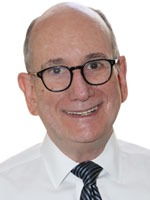CAALA Vegas and civility
Even a Presidential candidate could learn some lessons
As the Presidential election campaign grinds on, some people are convinced that Donald Trump is not qualified to be president. I know how I feel about that subject, but I’ll cross my fingers and leave the final decision to the voters.
However, based on Trump’s behavior since the campaign began, I am certain that he is not qualified to hold another position− state-bar licensed attorney in California. Trump, of course, never attended law school and never passed the California bar exam, but even if he had, he couldn’t get past the attorney oath.
The oath that California attorneys currently take upon admission is set forth by statute. Rule 9.4 of the California Rules of Court, effective May 27, 2014, was adopted to supplement the attorney oath for new lawyers. Rule 9.4 states:
In addition to the language required by Business and Professions Code section 6067, the oath to be taken by every person on admission to practice law is to conclude with the following: ‘As an officer of the court, I will strive to conduct myself at all times with dignity, courtesy, and integrity.’
Sorry, Donald, you lose. For California attorneys, civility matters.
But this column isn’t about Trump or the presidential election, it’s about CAALA Vegas and civility.
Civility in the legal system
I’ve written in the past that CAALA Vegas is special for a lot of reasons, from the quality of the programs, to the sheer size of the attendance or the flawless way it is organized and produced.
But CAALA Vegas is different from any other legal convention for another reason. No legal convention anywhere brings together as many judges, defense attorneys and plaintiff trial lawyers as the CAALA Convention.
Nearly every education panel includes a current sitting jurist providing a judicial perspective; and many panels include defense attorneys.
CAALA Vegas convincingly proves that there can be civility within the justice system. It answers unequivocally the question “Can We All Get Along?”
Many prominent attorneys from both sides of the table have written about the importance of civility within the legal system.
Raoul Magaña & other jurists
More than 40 years ago the renowned plaintiffs’ attorney and CAALA Hall of Fame member Raoul Magaña wrote that “Invective, bitterness, a denigration of the position of the advocate has no place in a courtroom. Our profession has received its share of adverse publicity from all quarters, much of it probably deserved, but without the recognition of the basic efforts that guide lawyers.”
Magaña added that “respect and good manners are indispensable virtues of a trial lawyer. Denigrate no one. Present the facts and let the trier of the facts make the determination.”
Mr. Trump might want to take some lessons from Raoul Magaña, a true gentlemen and highly effective advocate.
When Patrick Kelly was President of the State Bar of California he was instrumental in ensuring that the attorney oath should contain a commitment to civility.
Kelly wrote:
Attorneys entering the profession should be on notice from the start that civility is a fundamental duty of all attorneys. Moreover, if we practice civility we are a much more worthy and serious opponent in any dispute. And as all of us who litigate know, civility is highly respected by judges and makes a lawyer a much more effective advocate.
Many jurists have written in this magazine about the importance of civility. Four years ago Appellate Justice John Segal, then an L.A. Superior Court judge, wrote: “The best trial lawyers I have been fortunate to see in action are forceful, persistent, tenacious, even a little confrontational when the stakes are high, but never mean. It may be that they know that treating litigants and lawyers respectfully, professionally and even nicely, pays off in the long run.”
Judge Daniel Buckley, Assistant Presiding Judge of the L.A. Superior Court, feels strongly about the civility issue. He includes the topic whenever he speaks to attorneys or bar associations and wrote a highly regarded Advocate column on civility that has been reprinted many times.
In order to “break open the lines of communication between attorneys in a civil lawsuit” Judge Buckley wrote that “all attorneys must have a cup of coffee with their adversaries at the outset of the case.”
Buckley wrote that “Civility is a hot topic for many bar associations and that CAALA is one that emphasizes civility at all events and in all publications.”
Buckley added:
We are all honored to work in the finest profession in the land. But quite simply, we all will benefit from more civility. The courts will run more smoothly, clients will be more satisfied because they will not be paying for needless litigation, attorneys will be less stressed, young attorneys will learn from positive role models, and we can look in the mirror and know that we are facilitating justice.
If you are at CAALA Vegas, hopefully you are taking Judge Buckley’s advice and connecting with an attorney who might be your adversary. And don’t forget the theme, it’s your opportunity to celebrate the American Justice System.
Stuart Zanville

Stuart Zanville is the Executive Director of the Consumer Attorneys Association of Los Angeles (CAALA). Contact him at (213) 487-1212 or by e-mail: stuart@caala.org.
Copyright ©
2025
by the author.
For reprint permission, contact the publisher: Advocate Magazine
